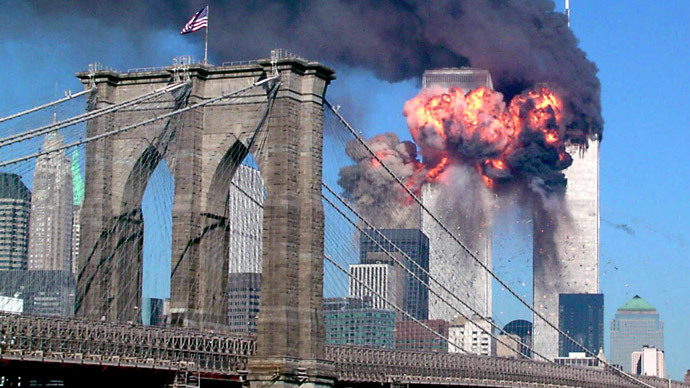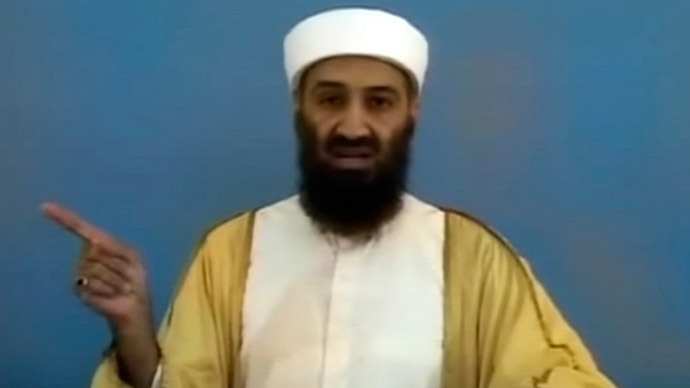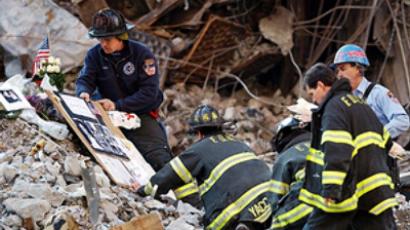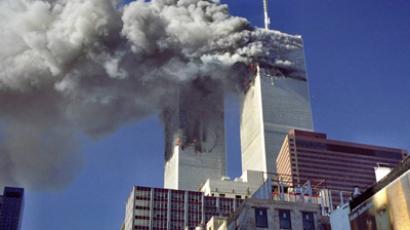Co-conspirator of 9/11 attacks says Saudi prince financed operation

A former self-described Al-Qaeda collaborator serving a life sentence in prison now says he wants to testify in court about what he claims to know about a Saudi Arabian prince’s alleged role in financing the September 11, 2001 terrorist attacks.
Zacarias Moussaoui, a French citizen convicted in 2006 for
charges related to his admitted role in the 9/11 attacks, wrote
in a letter received this month by a federal court in Oklahoma
that he wants to take the stand and explain supposed links
between the terrorist plot and Prince Turki bin Faisal Al Saud.
According to a letter sent by the man known as the “20th
hijacker” to the Oklahoma Western District Court dated October
23, 2014, the 46-year-old maximum security inmate says the prince
assisted with his “Islamic terrorist activities in
Norman” – a reference to the Midwestern town where Moussaoui
received flight lessons in 2001, as did 9/11 hijackers Mohamed
Atta and Marwan al-Shehhi.
The prince financed Moussaoui’s own flight classes, he asserts,
“and was doing so knowingly for Osama bin Laden.”

“I am ready to testify about all the above and more in your
court in an Open Hearing that I request,” he added.
But while his claim is being labeled “incredible” by the
likes of the Associated Press, some critics are concerned that
the allegations Moussaoui wants to make come from a convicted
criminal with questionable credibility. Moussaoui was originally
apprehended in August 2011 and charged with immigration
violations, and federal authorities had him in custody as the
9/11 attacks unfolded. Shortly after, Moussaoui was indicted by a
federal grand jury and charged with six felony counts related to
those events. He was sentenced to six life terms in prison in
2006, but an audio recording attributed to former Al-Qaeda leader
Osama bin Laden reportedly dismissed connections between the
individual and the infamous plot.
Last month’s letter is without any connection to current cases
being considered in United States federal court.
“However,” a magistrate judge wrote in response, “…
the gist of Plaintiff’s complaint to be his desire to testify or
be deposed regarding a long list of persons allegedly involved in
the 9/11 terrorist attacks on the United States.”
According to that response from US Magistrate Judge Shon T.
Erwin, though, Moussaoui’s claims – not withstanding his
credibility – shouldn’t be considered in Oklahoma on account of
venue.
“Even if his testimony pertains to acts that occurred at the
same time he was taking flight classes in Norman, Oklahoma, there
is no reason—at least not one apparent from his complaint — why
he must testify in the Western District of Oklahoma,” the
judge wrote. “His criminal prosecution took place in the
Eastern District of Virginia, and the multi-district civil
litigation for personal and commercial damages suffered by the
9/11 victims is pending in the Southern District of New
York.”
Moussaoui writes that he already laid forth his claims concerning
the Saudi prince in a deposition he provided recently pertaining
to a compensation fund for the families of 9/11 victims.

“Even if he somehow got to the point where he could testify, there would be a credibility issue,” Carl Tobias, a professor at the University of Richmond School of Law, told the Daily Mail. “Would his testimony be valuable? That's doubtful.”
Nevertheless, the paper also reports that in order to hear further about his allegations, federal attorneys have since met with Moussaoui at the Colorado facilities he’s slated to spend the rest of his life in.
Earlier this year, lawyers for Saudi Arabia insisted in court filings that the kingdom “had no role in the attacks of September 11, 2001,” and that the US government “has said often and vigorously that Saudi Arabia is an important ally in the fight against terrorism.”














